
Al Shouf Cedar Nature Reserve: Lebanon's Green Treasure
Discover the Al Shouf Cedar Nature Reserve, the largest protected area in Lebanon, home to ancient cedar trees, diverse ecosystems, and rich cultural heritage.
Nestled in the heart of Lebanon, the Al Shouf Cedar Nature Reserve is a sanctuary of natural beauty and biodiversity. This vast reserve spans over 500 square kilometers, making it one of the largest protected areas in the Middle East. Home to the ancient and majestic cedar trees, some of which are over 2,000 years old, the reserve offers visitors a glimpse into Lebanon's rich natural heritage. The reserve is not just about its iconic cedar forests; it also encompasses a variety of ecosystems, including oak forests, alpine pastures, and pristine rivers. Visitors can enjoy a range of activities from hiking and bird watching to exploring traditional Lebanese villages that dot the landscape. The reserve is also a haven for wildlife, including the rare and endangered Lebanese mountain gazelle and a variety of bird species. For those seeking a deeper connection with nature, the reserve offers eco-friendly accommodations and guided tours that highlight the unique flora and fauna of the region. The Al Shouf Cedar Nature Reserve is a destination that promises an unforgettable experience, blending natural wonders with cultural richness.
Local tips in Al Shouf Cedar Nature Reserve
- Visit during spring or autumn for the best weather and vibrant natural scenery.
- Wear comfortable hiking shoes and bring plenty of water.
- Consider hiring a local guide for an insightful experience.
- Check for any seasonal restrictions or guided tour schedules beforehand.
- Don't miss the local villages for a taste of traditional Lebanese culture.
Al Shouf Cedar Nature Reserve: Lebanon's Green Treasure
Nestled in the heart of Lebanon, the Al Shouf Cedar Nature Reserve is a sanctuary of natural beauty and biodiversity. This vast reserve spans over 500 square kilometers, making it one of the largest protected areas in the Middle East. Home to the ancient and majestic cedar trees, some of which are over 2,000 years old, the reserve offers visitors a glimpse into Lebanon's rich natural heritage. The reserve is not just about its iconic cedar forests; it also encompasses a variety of ecosystems, including oak forests, alpine pastures, and pristine rivers. Visitors can enjoy a range of activities from hiking and bird watching to exploring traditional Lebanese villages that dot the landscape. The reserve is also a haven for wildlife, including the rare and endangered Lebanese mountain gazelle and a variety of bird species. For those seeking a deeper connection with nature, the reserve offers eco-friendly accommodations and guided tours that highlight the unique flora and fauna of the region. The Al Shouf Cedar Nature Reserve is a destination that promises an unforgettable experience, blending natural wonders with cultural richness.
When is the best time to go to Al Shouf Cedar Nature Reserve?
Iconic landmarks you can’t miss
Shouf Biosphere Reserve Barouk Cedar Forest
Discover Lebanon's largest cedar forest in the Shouf Biosphere Reserve, a natural sanctuary with ancient trees, hiking trails, and diverse wildlife.
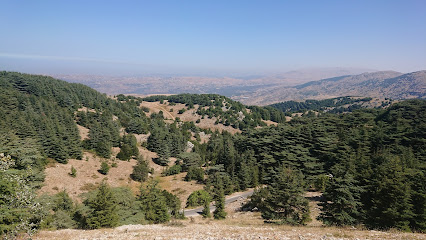
محمية ارز الشوف غابة ارز الباروك
Explore Lebanon's largest nature reserve, home to ancient cedar forests, diverse wildlife, and breathtaking mountain views.
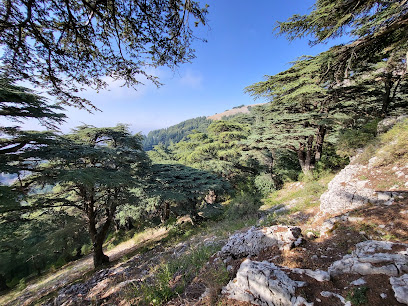
Shouf Biosphere Reserve / Maasser Cedar Forest
Explore ancient cedar forests, diverse wildlife, and rich cultural heritage in Lebanon's Shouf Biosphere Reserve, a UNESCO-protected natural wonder.
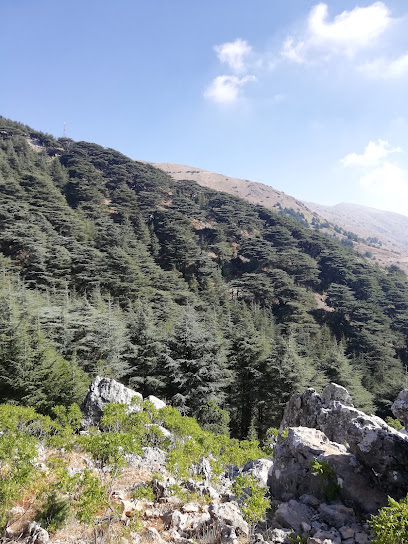
Shouf biosphere Reserve / Bmahray Ain Zhalta Forest
Discover ancient cedar forests, diverse wildlife, and stunning mountain scenery in Lebanon's Shouf Biosphere Reserve.
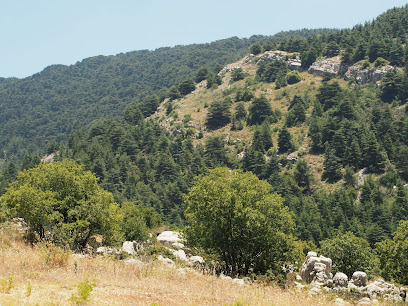
Shouf Cedars
Explore Lebanon's largest nature reserve, home to ancient cedar forests, diverse wildlife, and stunning mountain views.
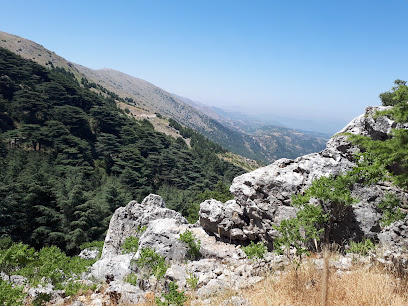
Shouf biosphere reserve/ Entrance to the Barouk Cedar forest
Explore ancient cedars, hike scenic trails, and discover Lebanon's natural beauty in the heart of the Shouf Biosphere Reserve.
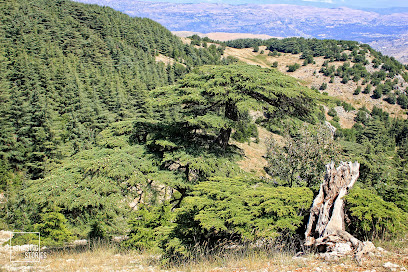
Shouf Biosphere Reserve /Niha Fortress
Discover Lebanon's Shouf Biosphere Reserve & Niha Fortress: Nature, history, and breathtaking views await in this protected haven.
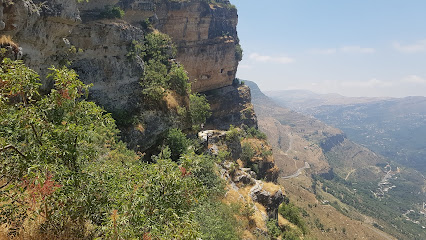
BAROUK RESERVE
Discover Lebanon's largest cedar reserve: Hike through ancient forests, witness diverse wildlife, and immerse yourself in nature's tranquility.
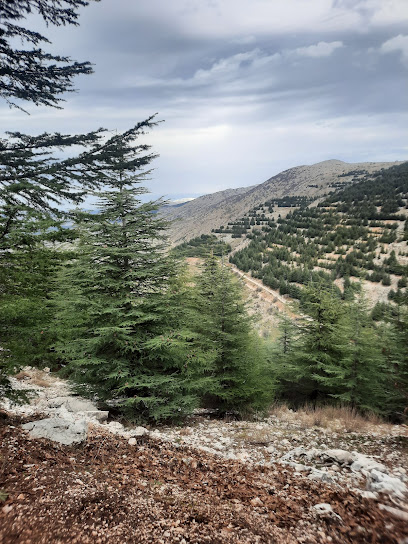
Cedars Forest
Discover Lebanon's ancient Cedars Forest: a UNESCO World Heritage Site, home to majestic trees with millennia of history and natural beauty.
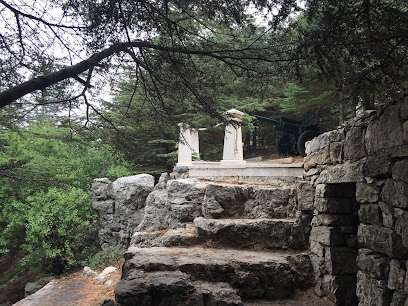
Shouf biosphere reserve-jbaa entrance
Discover Lebanon's natural beauty at the Jbaa entrance to the Shouf Biosphere Reserve, home to ancient cedar forests and diverse hiking trails.
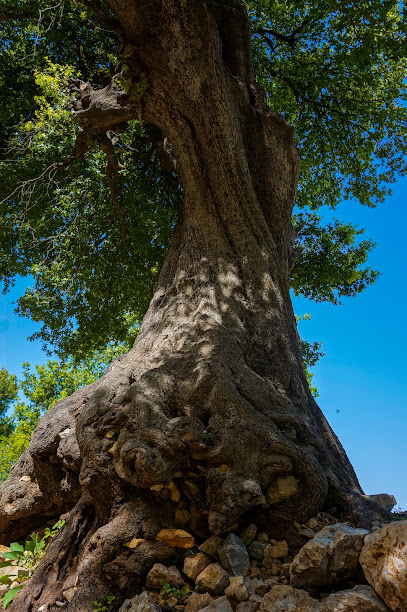
Unmissable attractions to see
Shouf biosphere Reserve / Bmahray Ain Zhalta Forest
Discover the breathtaking landscapes and rich biodiversity of the Shouf Biosphere Reserve, a pristine national treasure in Lebanon.
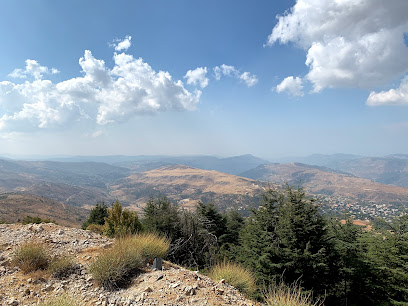
ProX Riding Club
Experience the thrill of adventure at ProX Riding Club in Kfardebian, Lebanon, offering ATV and snowmobile rentals for unforgettable outdoor escapades.

BIRAK PARK
Discover the joy of family fun at BIRAK PARK, an amusement park in Fraidis with thrilling rides and beautiful landscapes.
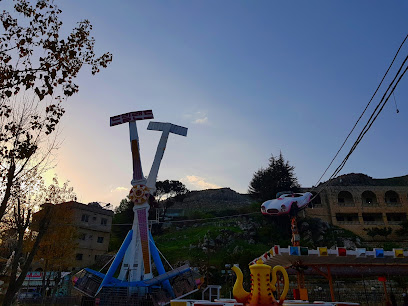
Cedars Forest
Explore the enchanting Cedars Forest in Lebanon, a nature preserve filled with ancient cedar trees and breathtaking mountain views, perfect for outdoor adventures.
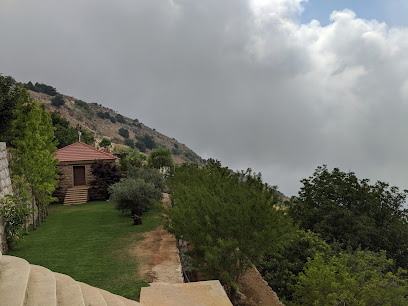
Farid & Daad Karam Reserve (UOB)
Discover the cultural heritage of Lebanon at the Farid & Daad Karam Reserve in Kaftoun, a captivating museum showcasing local history and artistry.
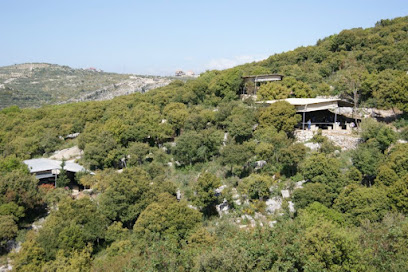
Shouf Bio
Explore Shouf Bio in Niha, Lebanon: a serene nature preserve with breathtaking landscapes, diverse wildlife, and tranquil walking trails.

Essential places to dine
Shallalat Al Barouk Hotel & Restaurant
Experience tranquility at Shallalat Al Barouk Hotel & Restaurant in Chouf - where nature meets culinary excellence.
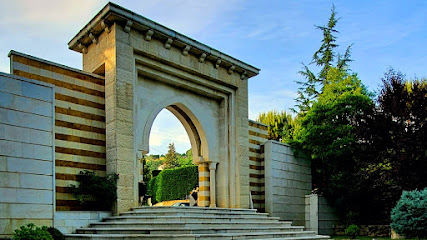
Baytna restaurant , Barouk
Experience the flavors of Lebanon at Baytna Restaurant in Barouk – where tradition meets taste amidst breathtaking scenery.
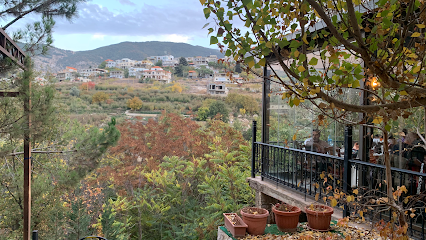
Al Midyaf restaurant
Experience exquisite Lebanese cuisine amidst lush greenery at Al Midyaf Restaurant in Barouk.
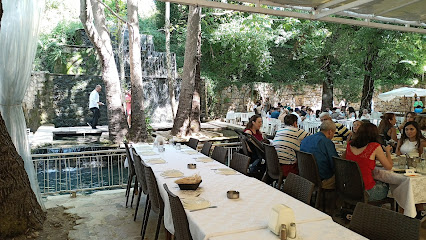
Shouf Cedars
Discover Shouf Cedars Nature Preserve: A breathtaking blend of ancient cedar forests and stunning mountain vistas in Lebanon.
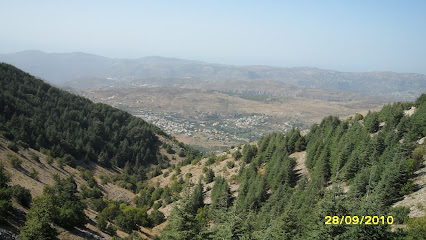
Jar Al Arez - جار الأرز
Savor authentic Lebanese cuisine amidst breathtaking views at Jar Al Arez in Ain Zhalta's Shouf Biosphere Reserve.

Markets, malls and hidden boutiques
Shouf Biosphere Reserve Barouk Cedar Forest
Explore the breathtaking Shouf Biosphere Reserve Barouk Cedar Forest, where ancient cedars stand tall amidst stunning landscapes and diverse wildlife.
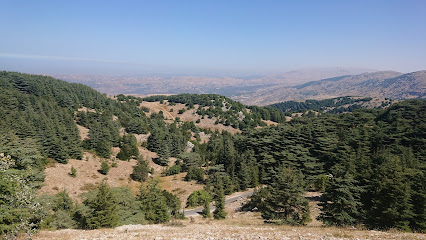
محمية ارز الشوف غابة ارز الباروك
Explore the breathtaking Barouk Cedar Reserve, a UNESCO World Heritage site in Lebanon, known for its majestic cedars and serene hiking trails.
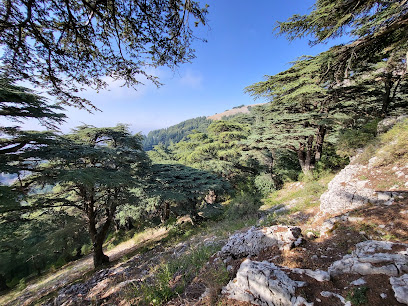
Shouf Biosphere Reserve / Maasser Cedar Forest
Discover the breathtaking beauty of nature at Shouf Biosphere Reserve, home to ancient cedar forests and rich biodiversity in Lebanon.
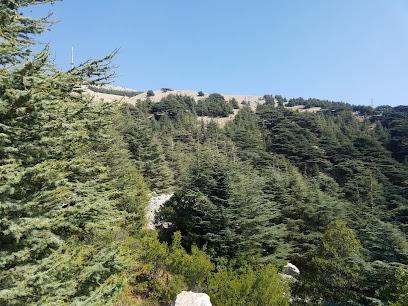
Shouf biosphere Reserve / Bmahray Ain Zhalta Forest
Discover the Shouf Biosphere Reserve, a breathtaking national reserve in Lebanon, rich in biodiversity and natural beauty, perfect for nature lovers and adventurers.
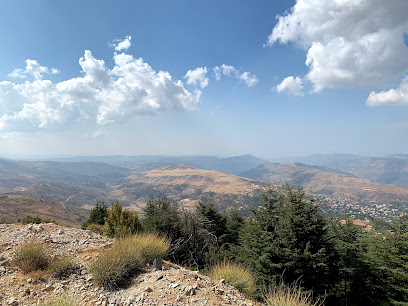
Shouf Cedars
Explore the breathtaking Shouf Cedars in Lebanon, a UNESCO World Heritage site known for its ancient trees and stunning natural landscapes.
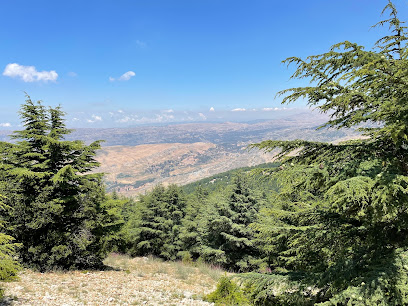
Shouf biosphere reserve/ Entrance to the Barouk Cedar forest
Discover the natural beauty of Lebanon at the Shouf Biosphere Reserve, a sanctuary of cedar forests and diverse wildlife.
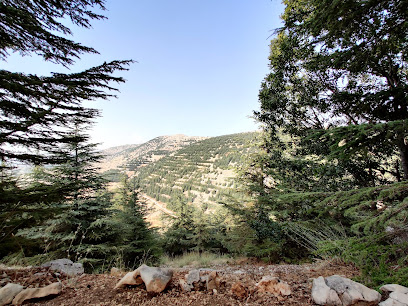
BAROUK RESERVE
Explore the breathtaking landscapes and rich biodiversity of Barouk Reserve, a must-visit natural sanctuary in Lebanon.
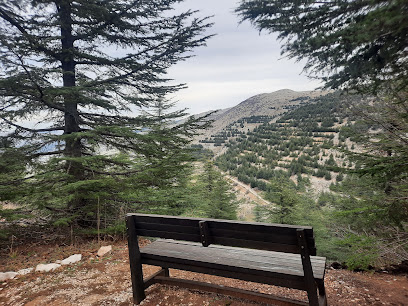
Shouf biosphere reserve-jbaa entrance
Discover the stunning landscapes and rich biodiversity of Shouf Biosphere Reserve, a UNESCO World Heritage site in Lebanon's breathtaking nature.
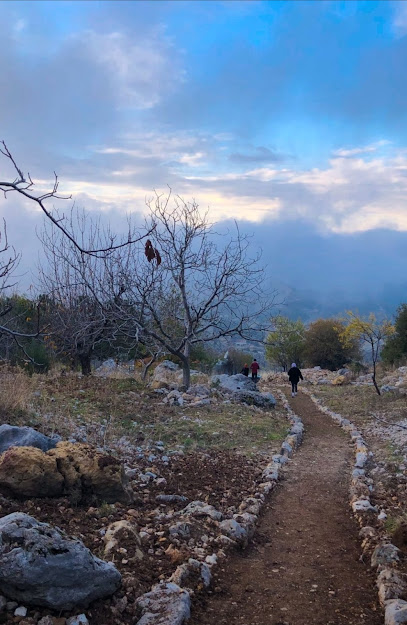
Shouf
Explore Shouf Supermarket in Boutmeh for a diverse selection of local flavors and fresh ingredients that embody the essence of Lebanese cuisine.

Essential bars & hidden hideouts
Shouf Biosphere Reserve Barouk Cedar Forest
Explore the breathtaking Barouk Cedar Forest, a stunning national forest in Lebanon's Shouf Biosphere Reserve, rich with history and natural beauty.
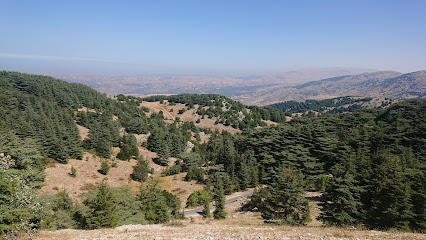
Shallalat Al Barouk Hotel & Restaurant
Experience the perfect blend of comfort and cuisine at Shallalat Al Barouk Hotel & Restaurant in the heart of Chouf, Lebanon.
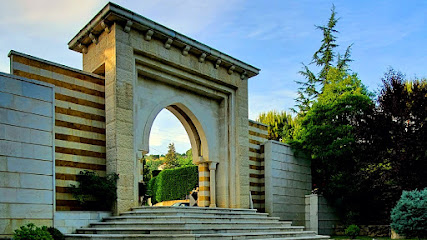
Baytna restaurant , Barouk
Discover the authentic flavors of Lebanon at Baytna Restaurant, where tradition meets modern dining in the beautiful Barouk region.
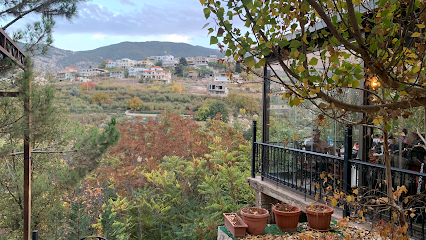
Al Midyaf restaurant
Discover the flavorful Lebanese cuisine at Al Midyaf Restaurant, nestled in the beautiful Barouk mountains, perfect for every food lover.
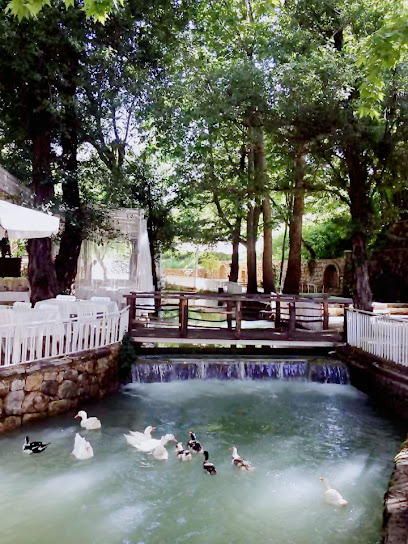
The Bevview
Experience the charm of Baskinta at The Bevview, where stunning views meet vibrant nightlife and exceptional shisha in an inviting atmosphere.
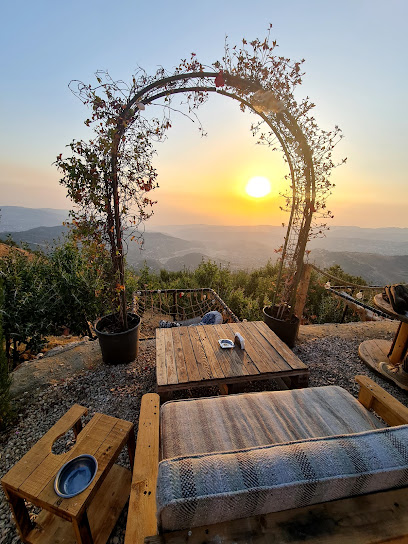
Al Kooz Cafe
Experience the heart of Lebanese cuisine at Al Kooz Cafe in Barouk, where every dish tells a story and every bite is a celebration of flavor.
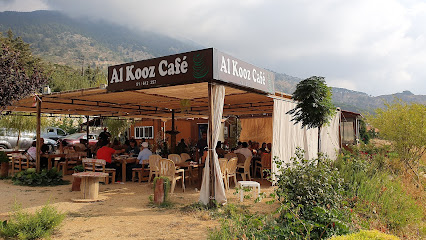
St. Michael Winery, Maasser El Chouf
Experience the elegance of St. Michael Winery in Maasser El Chouf, where exquisite wines and stunning views create unforgettable moments.
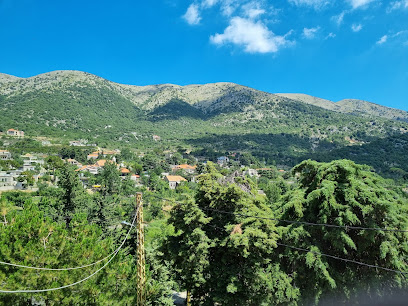
SIGHT - Deir El Qamar
Experience the vibrant nightlife at SIGHT in Deir El Qamar, Lebanon, where cocktails and music create unforgettable evenings.
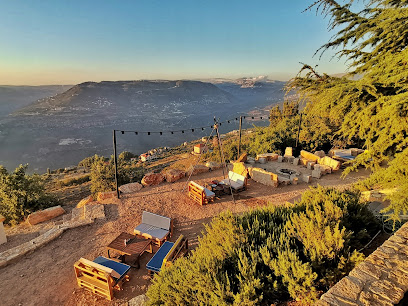
Shouf Highland
Experience the breathtaking beauty and rich culture of Shouf Highland, a hidden gem in Lebanon's stunning landscape.
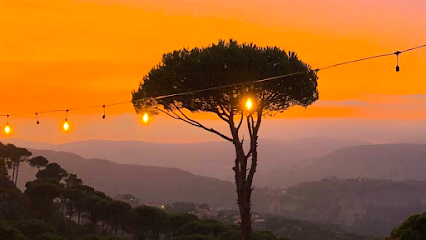
BAROUK RESERVE
Explore the natural beauty and tranquility of Barouk Reserve, Lebanon's hidden gem for outdoor adventures and serene landscapes.
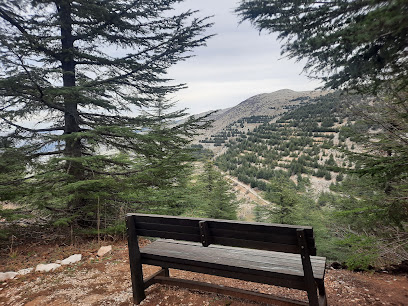
Local Phrases about Al Shouf Cedar Nature Reserve
-
- Helloمرحبا
[marhaba] - Goodbyeوداعا
[wadaan] - Yesنعم
[naam] - Noلا
[laa] - Please/You're welcomeمن فضلك
[min fadlik] - Thank youشكرا
[shukran] - Excuse me/Sorryعذرا
[aathirana] - How are you?كيف حالك؟
[kayf halik?] - Fine. And you?بخير. وأنت؟
[bikhayr. want?] - Do you speak English?هل تتحدث الإنجليزية؟
[hal tatahadath al-inglizia?] - I don't understandأنا لا أفهم
[ana la afham]
- Helloمرحبا
-
- I'd like to see the menu, pleaseأريد أن أرى القائمة، من فضلك
[urid an ara alqaima, min fadlik] - I don't eat meatأنا لا آكل اللحم
[ana la aakol al-lahm] - Cheers!في صحتك!
[fi sahtak!] - I would like to pay, pleaseأريد أن أدفع، من فضلك
[urid an adfaa, min fadlik]
- I'd like to see the menu, pleaseأريد أن أرى القائمة، من فضلك
-
- Help!النجدة!
[alnajda!] - Go away!انصرف!
[ansarf!] - Call the Police!اتصل بالشرطة!
[itasil bialshurta!] - Call a doctor!اتصل بالطبيب!
[itasil bialtabib!] - I'm lostلقد ضللت الطريق
[laqad dalalt altariq] - I'm illأنا مريض
[ana mareed]
- Help!النجدة!
-
- I'd like to buy...أريد أن أشتري...
[urid an ashtari...] - I'm just lookingأنا فقط أتفرج
[ana faqat atfarg] - How much is it?بكم ثمنه؟
[bikam thamnuhu?] - That's too expensiveهذا غالي جدا
[hatha ghali jiddan] - Can you lower the price?هل يمكنك خفض السعر؟
[hal yumkinuk khafd alsaaar?]
- I'd like to buy...أريد أن أشتري...
-
- What time is it?كم الساعة؟
[kam alsaa'a?] - It's one o'clockالساعة الواحدة
[alsaa'at alwahida] - Half past (10)الساعة والنصف
[alsaa'at walnusf] - Morningالصباح
[assabah] - Afternoonالمساء
[almasa] - Eveningالليل
[allayl] - Yesterdayأمس
[ams] - Todayاليوم
[alyawm] - Tomorrowغدا
[ghadan] - 1واحد
[wahid] - 2اثنان
[ithnan] - 3ثلاثة
[thalatha] - 4أربعة
[arba'a] - 5خمسة
[khamsa] - 6ستة
[sitta] - 7سبعة
[sab'a] - 8ثمانية
[thamania] - 9تسعة
[tisa'a] - 10عشرة
[ashara]
- What time is it?كم الساعة؟
-
- Where's a/the...?أين...؟
[ayn...?] - What's the address?ما هو العنوان؟
[ma hu al'anaan?] - Can you show me (on the map)?هل يمكنك أن تريني (على الخريطة)؟
[hal yumkinuk an tarini (ala alkharita)?] - When's the next (bus)?متى الحافلة القادمة؟
[mata alhafilat alqadima?] - A ticket (to ....)تذكرة (إلى...)
[tathkira (ila...)]
- Where's a/the...?أين...؟
History of Al Shouf Cedar Nature Reserve
-
The Al Shouf Cedar Nature Reserve, located in the Shouf Mountains of Lebanon, is home to some of the last remaining cedar forests in the region. The cedars of Lebanon have been renowned since ancient times, with references appearing in the Epic of Gilgamesh and the Bible. These trees were highly valued by ancient civilizations, including the Phoenicians, Egyptians, and Mesopotamians, for their high-quality timber used in shipbuilding, temples, and palaces.
-
During the Phoenician era, around 1500 BCE to 539 BCE, the cedar forests of Al Shouf were extensively harvested. The Phoenicians, famous for their seafaring skills, used cedar wood to construct their legendary ships. These vessels enabled them to establish trade routes across the Mediterranean, spreading their influence and culture far and wide.
-
Under Roman and later Byzantine rule, the cedar forests continued to be exploited for timber. The Romans, who controlled the region from 64 BCE, used the wood for building projects, including temples and administrative buildings. The Byzantine Empire, which succeeded the Romans, also made use of this precious resource, further depleting the cedar forests.
-
During the Ottoman Empire's control over Lebanon from the early 16th century until the end of World War I, the cedar forests saw renewed exploitation. The Ottomans used the cedar wood for constructing railway sleepers and other infrastructure projects. However, the extensive logging led to significant deforestation, prompting local communities to take measures to protect the remaining trees.
-
In the 20th century, recognizing the ecological and cultural importance of the cedar forests, efforts were made to preserve and restore them. The establishment of the Al Shouf Cedar Nature Reserve in 1996 marked a significant milestone in these conservation efforts. The reserve, spanning an area of approximately 550 square kilometers, aims to protect the biodiversity of the region, including the majestic cedar trees, and promote sustainable tourism.
-
The cedar tree is a symbol of Lebanon, proudly featured on the national flag. The forests of Al Shouf hold immense cultural significance for the Lebanese people, representing endurance, resilience, and the natural heritage of the country. The reserve is not only a sanctuary for flora and fauna but also a living testament to the deep-rooted connection between the Lebanese people and their natural environment.
Al Shouf Cedar Nature Reserve Essentials
-
Al Shouf Cedar Nature Reserve is located in the Shouf District of Lebanon. The nearest major city is Beirut, which is approximately 70 kilometers away. From Beirut, you can reach the reserve by car or taxi, which typically takes about 1.5 to 2 hours depending on traffic. Public buses and minibuses (known as 'servees') also operate from Beirut to the towns near the reserve, such as Barouk and Maaser El Shouf. From these towns, local taxis or walking can get you to the reserve entrance.
-
While visiting the Al Shouf Cedar Nature Reserve, having a car is the most convenient way to explore the area due to its vastness and the flexibility it offers. Car rentals are available in Beirut and other major cities. However, if you prefer not to drive, local taxis are an option but can be more expensive. Public transportation is limited but can be used to reach nearby towns. Within the reserve, walking is the primary mode of transportation, so wear comfortable hiking shoes.
-
The official currency in Lebanon is the Lebanese Pound (LBP). US Dollars are also widely accepted. Credit cards are accepted in many hotels, restaurants, and shops in the towns surrounding the reserve, but it is advisable to carry cash for entrance fees and small purchases within the reserve. ATMs are available in larger towns near the reserve, so withdrawing sufficient cash before entering the park is recommended.
-
Al Shouf Cedar Nature Reserve is generally a safe destination for tourists. However, standard travel precautions should be taken. Keep an eye on your belongings, especially in crowded areas. Avoid walking alone at night in unfamiliar areas. There are no specific high-crime areas targeting tourists within the reserve, but staying vigilant is always wise.
-
In case of emergency, dial 112 for immediate assistance, which is the emergency number for police, fire, and medical services in Lebanon. The reserve staff are trained to handle emergencies and can guide you to the nearest help. It is advisable to have travel insurance that covers medical emergencies. For minor health issues, there are pharmacies in nearby towns where you can purchase over-the-counter medications.
-
Fashion: Do dress modestly, especially when visiting religious sites within the reserve. Avoid wearing revealing clothing. Religion: Do respect local customs and traditions. Public Transport: Do be respectful and give up your seat to elderly passengers if using public transport. Greetings: Do greet people with a handshake or a friendly 'Marhaba' (hello). Eating & Drinking: Do try local delicacies and accept food offerings graciously. Don't refuse hospitality, as it is considered impolite.
-
To experience Al Shouf Cedar Nature Reserve like a local, visit during the spring or fall when the weather is most pleasant and the flora is in full bloom. Engage with local guides who can offer in-depth knowledge about the history and ecology of the area. Don't miss the traditional Lebanese meals available in nearby towns, and take the opportunity to buy local crafts and products such as honey and olive oil. For a unique experience, participate in a guided hike to the ancient cedar forests, which are a significant cultural and natural heritage of Lebanon.
Trending Landmarks in Al Shouf Cedar Nature Reserve
-
Shouf Biosphere Reserve Barouk Cedar Forest
-
محمية ارز الشوف غابة ارز الباروك
-
Shouf Biosphere Reserve / Maasser Cedar Forest
-
Shouf biosphere Reserve / Bmahray Ain Zhalta Forest
-
Shouf Cedars
-
Shouf biosphere reserve/ Entrance to the Barouk Cedar forest
-
Shouf Biosphere Reserve /Niha Fortress
-
BAROUK RESERVE
-
Cedars Forest
-
Shouf biosphere reserve-jbaa entrance
Nearby Cities to Al Shouf Cedar Nature Reserve
-
Things To Do in Deir el Qamar
-
Things To Do in Broummana
-
Things To Do in Anjar
-
Things To Do in Zahle
-
Things To Do in Beirut
-
Things To Do in Jounieh
-
Things To Do in Rashaya
-
Things To Do in Sidon
-
Things To Do in Byblos
-
Things To Do in Marjayoun
-
Things To Do in Baalbek
-
Things To Do in Batroun
-
Things To Do in Bcharre
-
Things To Do in Tyre
-
Things To Do in Safed









